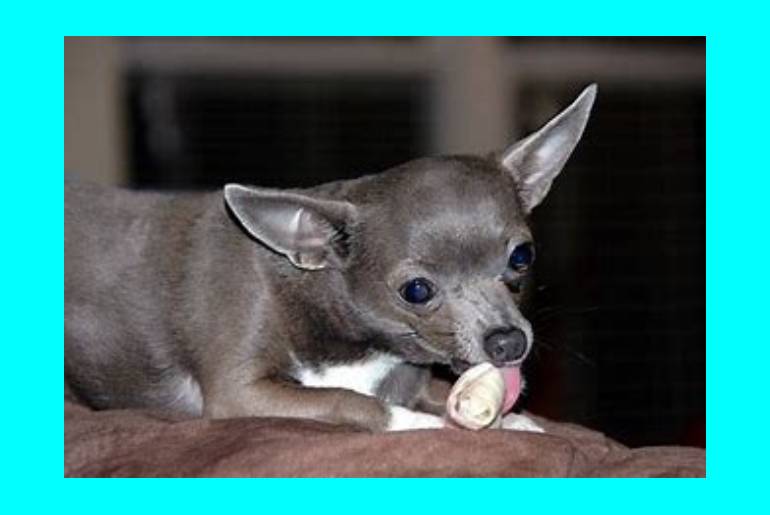Liver shunts in dogs are a medical condition that affects the blood flow through your dog’s liver. Although the ductus venosus stays open, abnormal blood vessel development and breeds at risk of developing a liver shunt can cause this problem. Diagnosing these conditions as soon as possible is important because it could lead to health complications. Treatment of liver shunts in chihuahuas usually requires surgery or medication, depending on the severity of the case.
Lately, they seem to be getting sick more often than usual or just not acting like themselves. Do you wonder if something might be wrong with them? You may have noticed that their appetite has decreased significantly, they don’t play as much as before, and they’re losing weight quickly. This can be a sign of liver shunt in dogs!
What Are Liver Shunts In Chihuahuas?
Liver shunts are a medical condition that affects the blood flow through your dog’s liver. As a result, the ductus venosus stays open, which can cause abnormal blood vessel development. This problem is most commonly seen in dogs and can result in health complications if not treated.
Signs Of Liver Shunts In Chihuahuas
There are several signs that you may be able to observe if your dog has a liver shunt. Some of these include:
- Decreased appetite
- Not playing as much as before
- Rapid weight loss
- Vomiting
- Diarrhea
- Bad breath
- Depression
Stunted growth is the most prevalent symptom of a hepatic shunt in dogs. If your dog has not been growing as it should, it is important to have them checked out by a veterinarian.
A dog with chronic hepatic shunts or severe cases may press its head against walls and doors, stagger around like it’s drunk, circle, and even have seizures. Unfortunately, these frightening indications are frequently more visible to a dog owner than to a small, quiet puppy.
Excessive thirst and urination may occur in dogs with hepatic shunts. In addition, if the kidneys and bladder are impacted by a buildup of toxins in the body, vomiting, and diarrhea may develop.
Causes Of Liver Shunts In Chihuahuas
There are several causes of liver shunts in dogs. One common cause is when the ductus venosus stays open, which allows the blood to bypass the liver. This results in abnormal blood vessel development and can lead to hemangiosarcoma or thromboembolism. Other causes of this condition include breeds at risk for developing a liver shunt, such as Boxers, Bulldogs, Golden Retrievers, Great Danes, and Doberman Pinschers.
Ductus Venosus Stays Open
The ductus venosus is a blood vessel that bypasses the liver and carries blood directly from the umbilical vein to the heart. Normally, this vessel closes shortly after birth. However, it stays open in some dogs, which can cause a liver shunt.
Abnormal Blood Vessel Development
Another common cause of liver shunts in dogs is abnormal blood vessel development. This can be due to various reasons, such as infections, tumors, or congenital disabilities.
Breeds At Risk For Developing A Liver Shunt
Liver shunts are more common among certain dog breeds than others. The following dogs have an increased chance of getting this medical problem:
- Boxer
- Bulldog
- Beagle
- Bernese
- Mountain Dog
- Bloodhound Border Collie
- Chihuahua
- English Springer
- Spaniel
- German Shepherd
- Husky
- King Charles
Diagnosing Liver Shunts In Chihuahuas
This can be done through various methods, such as blood tests, ultrasound, or radiography.
If you suspect your dog may have a liver shunt, it is important to take them to the veterinarian for an evaluation. The vet will perform a physical examination and ask about your dog’s symptoms. Similarly, they may also order some tests, such as blood work, urinalysis, and abdominal ultrasound, to help diagnose the condition.
Treatment Of Liver Shunts In Chihuahuas
Treating liver shunts in dogs usually requires surgery or medication, depending on the severity of the case. Surgery is typically recommended for dogs with severe health problems caused by the liver shunt. Medication can help treat symptoms and improve the dog’s quality of life.
It is important to seek veterinary care if you think your dog may have liver shunts. The treatment for liver shunts in dogs usually requires surgery or medication, depending on the severity of the case.
Moreover, surgery is often necessary to close the ductus venosus and correct the abnormal blood vessel development. However, if the condition is caught early enough, medications may be able to help manage symptoms until surgery can be performed.
Diet for Dogs With Liver Shunts
Dogs with liver shunts need a special diet that contains low protein levels. This is because some of these dogs will have trouble digesting certain proteins, which can lead to symptoms such as vomiting and diarrhea.
In this case, it may be necessary for your vet to prescribe an easily digestible (low-protein) dog food until they are ready for regular dog chow again.
Not all cases require surgery or medications to effectively treat liver shunts in dogs. However, suppose home remedies do not improve your pet’s condition within a couple of days or weeks. In that case, you should consult with a veterinarian about what other treatment options are available for them.
Conclusion
In conclusion, liver shunts in dogs can be a serious, life-threatening condition. Suppose you think that your dog may have this medical problem. In that case, it is important to examine your chihuahua as soon as possible by a veterinarian who specializes in canine health care.




